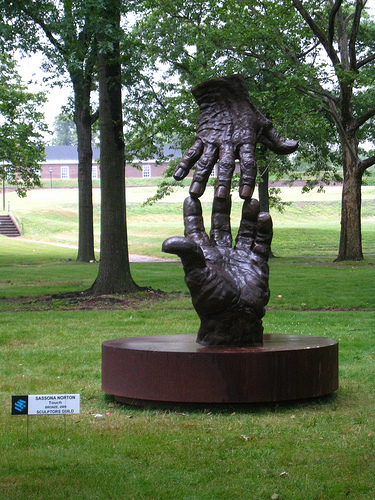My late father was a consummate salesman. When I was young, he worked for a photography studio passing proofs. He’d visit people’s homes with the proofs of their children’s pictures and help them make their selection for enlargements, montages, etc. He said he could count on a high percentage of sales because everyone smiles at the sight of their child’s face. Unless the pictures were awful (and even then) or the customer wanted them for free, he made the sale.
At one point, he was offered a job selling fire extinguishers to homes and businesses. The commission was better and the hours more regular, but he turned it down. He said the public doesn’t choose to invest in future disaster. They consider it bad luck. Precaution is a tough sale.
I bring this up because for the time he lived in when he said it, he was right. In the decades between the Vietnam and Gulf Wars, Americans didn’t like to spend money on something they hoped they’d never need. Nor did they welcome thinking about possible future catastrophes. But that was then and this is now. Now we have seen the most terrible things happen and we are all about safety measures and preemptive strikes. Which brings us to the home security industry.
We recently had our house alarmed after twenty years of living without one. The kids had already moved out, which caused no end of good-natured ribbing, like, “Hey, thanks, Mom! Way to protect us all those years!” In fact, it was the kids’ presence that made the house feel safe. They were constantly in and out with their friends, I was rarely alone, and besides, who in their right mind would break into a house with teenagers?
After the Towers fell and it was clear our enemies walked among us, the alarm companies began their guerrilla television ads targeting women home alone or with small children. I’m sure from a marketing standpoint they picked the right focus group and they certainly reached me. But it’s the slant of the ads that I find disturbing. One has a pretty young woman saying goodnight to her handsome date, telling him she really enjoyed herself, but she just went through a bad breakup and yada yada that’s the reason she isn’t inviting him in. He says, “That’s okay.” It’s obvious this is their first date so why in the name of empowered women everywhere is she apologizing for not having sex with him? Does the chowderhead who wrote the ad still think women need to put out when you buy them dinner? What decade is this?
To make it worse, seconds later there’s a loud bang on her back door and she looks up without worry and says, “Brad, is that you?” No, it’s a biker-looking guy with a menacing face and she screams, the alarm goes off, and she runs upstairs. So if it WAS Brad, that would be a good thing? She just sent him home. Does she want a man who can’t take no for an answer? And the guy breaking in has to look like a criminal. Brad is cute, so there’s no need to worry about him. From the youngest age, we tell our children that bad people look like everyone else. But for intelligent, independent young women, society still sends the message that good-looking guys are safe. Anyone remember Ted Bundy? Stunner. Focus group that.
Daughter’s Fotos feature last weekend’s FIGMENT NYC on Governors Island




